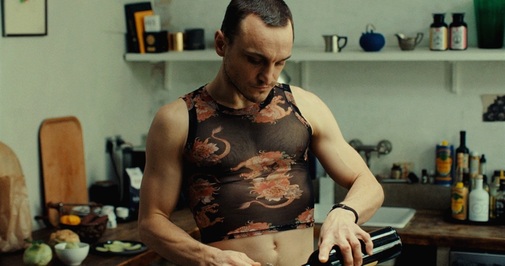 PASSAGES should earn Khadija Zeggaï an Oscar nomination.
PASSAGES should earn Khadija Zeggaï an Oscar nomination.
As the voting for the 96th Academy Award nominations continues, there's a possibility that we'll get a repeat of 2019 in Best Costume Design. Though not disastrous, that season saw the lineup comprised exclusively of Best Picture nominees – a sad sight for a race where, once upon a time, brilliant work could be rewarded regardless of a film's general buzz. Maybe Wonka, The Color Purple, or Napoleon will stop that from happening, but it'll still result in a fairly expected ballot. Why not look elsewhere to some of the year's underrated gems? Please, Costume Branch, remember you represent the category of I Am Love, Bright Star, Marie Antoinette, and many others.
I've already made the case for La Chimera, Passages, and Pain Hustlers, so I won't repeat it. Still, even with those out of the way, there's plenty to celebrate from 2023 cinema. Here are ten Oscar-eligible achievements in costume design…
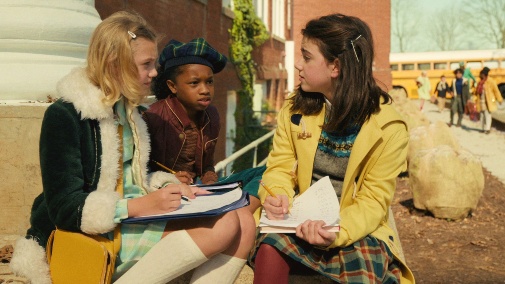
ARE YOU THERE GOD? IT'S ME MARGARET.
Costumes designed by Ann Roth
The living legend and Barbie actress does her usual magic in Kelly Fremon Craig's Judy Blume adaptation. There's much to love about the period specificities all over the screen, but it's how each ensemble speaks to the character wearing it that most entices. Roth's work allows us to see variations in class and social geographies, while tracing what versions of womanhood the younger characters aspire to be. We grasp what entices and frightens them, what confuses, what makes them dream and covet, and what inspires insecurity. Within each wardrobe, a parallel narrative takes place, both reflective and complementary to the text.
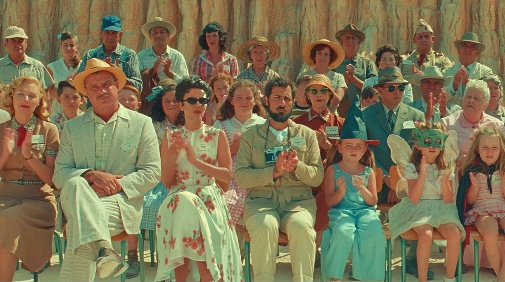
ASTEROID CITY
Costumes designed by Milena Canonero
The Italian Oscar-winner has been designing Wes Anderson's diorama-like fantasies since The Life Aquatic of Steve Zissou. At this point, her craft is an essential part of the director's vision, and it's starting to get difficult to imagine his style without Canonero's signature. Asteroid City represents another triumph, working within different levels of theater within theater, midcentury fashion through the looking glass. There's as much finesse in styling Johansson's movie star as Wright's perfectly tailored military man, Hanks' signifiers of wealth and the children's individuality. Somehow, the black-and-white work is even more impressive, culminating in Robbie wearing an idea of Elizabethan garb as conceived by Broadway and a 1950s televisual recreation of it.
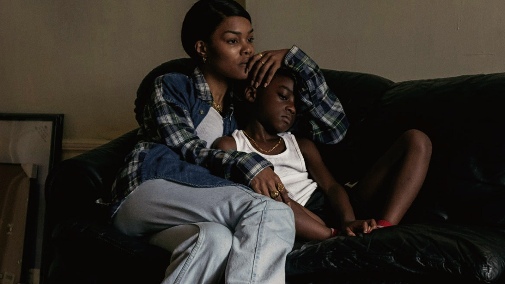
A THOUSAND AND ONE
Costumes designed by Melissa Vergas
While one may not consider late 1990s and 2000s fashion as period costuming, it should be counted as such. Consider Vergas' work in this Sundance champion, a deliberately pared-down invocation of the past, stylish yet always focused on articulating the characters' journeys. There's synergy between the costumes and director A.V. Rockwell's dramatic approach, as well as a concerted effort to play within the logic of the script's chronological jumps. Even just the shoes reflect the passage of time, both in wear-and-tear and the cycles of sneaker trends. Another great detail is the use of jewelry, its spectacle and occasional absence, and how it becomes a window into Inez's state of mind.
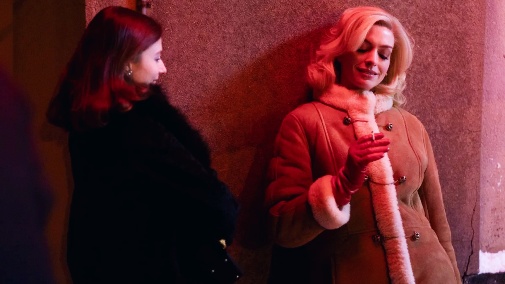
EILEEN
Costumes designed by Olga Mill
Set during an unforgiving Massachusetts winter in 1964, the Ottessa Mosfegh adaptation is almost too bleak for its own good. Though the plot hinges on melodramatic twists and turns, there's a great sobriety to its staging. At times, the tone and visual grammar are almost somber. In comes Hathaway's performance and the score to destabilize William Oldroy's funereal blues. The costumes do their part, too, negotiating between modes of storytelling. They establish a historically accurate, even drab, look at the socio-economic context the characters inhabit but can surrender to wilder expressivity at the drop of a hat. I cherish the crimson of a borrowed dress glowing out of Ari Wegner's gloomy frames, the seduction of Courrèges suiting, and the animalistic symbolism of a full-length fur coat.
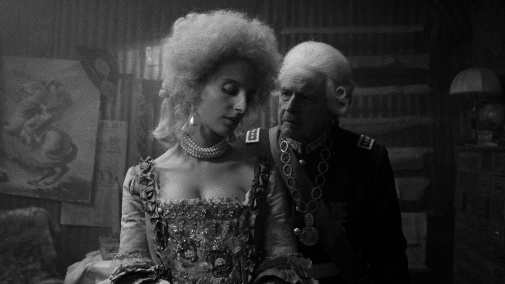
EL CONDE
Costumes designed by Muriel Parra
Vampire stories are catnip for costume lovers. They offer the dream of an impossible wearer whose style's been accrued over centuries, passing through time while collecting aesthetics and material artifacts. With its History-hopping prologue and third-act Marie Antoinette cosplay, Larraín's film throws plenty of challenges at its costume designer, and she hits them all out of the park. It's not just a matter of authenticity but spooky story shenanigans, including a vicious political critique set in a cold wasteland. This ancient absurdity reaches its final form in a trio of characters at odds with each other. There's the Catholic Church personified in a treacherous nun, shining in the lie of pure white. There's Pinochet reimagined as Nosferatu, decaying in dictator drag. There's the pigswill servant of Russian lineage, furs making him look more beast than person. Truthfully, there's a fourth key figure, but I won't spoil that surprise. Watch El Conde to discover her, the political panto of it all and the perfect power suit to fly across the Atlantic.
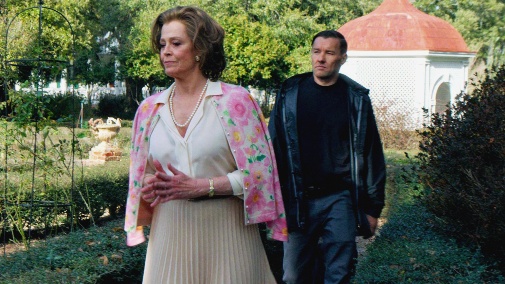
MASTER GARDENER
Costumes designed by Wendy Talley
I usually don't care for fashion that includes text over people's bodies. But costume isn't fashion, even if the two can coexist in symbiosis. Take Wendy Talley's work in the latest Schrader, a piece of late-career cinema drunk on sincerity and ready to play with archetypes. Some of my favorite costume moments of the year come from it. I recall a tie-dye t-shirt with "Good Vibes Only," almost risible in its forthrightness as a character introduction. At another point, a t-shirt with feminist messaging will adorn an unlikely character, adding notes of confoundment and even comedy to a tense scene. But it's not all fun and games. Talley captures the psychology of a man in search of redemption, his body meticulously clothed in a gesture of self-control, mayhap self-abnegation. She also dresses Weaver like a woman out of time – her curated image as much a weapon as it is subtle old money ostentation.
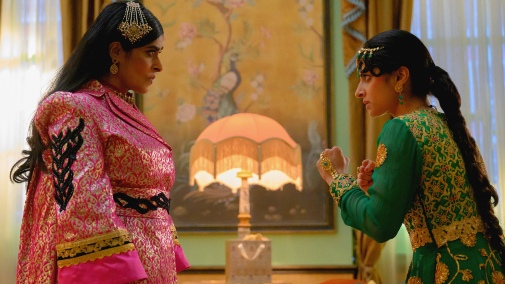
POLITE SOCIETY
Costumes designed by PC Williams
Nida Manzoor's debut feature plays with genre to the point one can't distinguish between emotional honesty and pastiche exaggeration. Such tricky tonalities pose challenges for everyone involved, including costume designer PC Williams. Thankfully, she's up to the task, never letting herself present a commonplace world devoid of fantasy. Even when the narrative's grounded, there's a touch of stylization to its look. As it transitions to full-on lunacy, the costumes smooth over the aesthetic leap, bringing it all down on a glitzy wedding heist. The sequence is a veritable tourbillion of Pakistani embroidery and beading, gorgeous textiles swirling through martial arts choreography. Wherever you look, there's something to feast your eyes upon, from an outlandish villain to the most minor of extras. Everyone looks incredible.
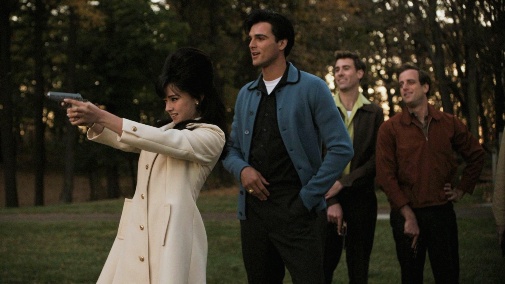
PRISCILLA
Costumes designed by Stacey Battat
Since Somewhere in 2010, Battat has done the costumes for every Sofia Coppola film, spanning from the modern celebrity culture of Bling Ring to the Civil War phantasmagoria of The Beguiled. Her range is sublime, but awards organizations have seldom recognize the designer. I wish Priscilla put an end to that plaudit draught, but it seems unlikely. It's especially unfortunate because this is a strong candidate for my favorite costume achievement of the cinematic year, a work so controlled and vital that one can't even begin to imagine Priscilla with a different designer in charge. In a tale of surfaces and overwhelming emptiness, the manicured image each figure assumes is as significant to our understanding as the actors' performances.
While many may be frustrated when faced with Copolla's approach, I appreciate its withholding nature and lack of narrative flow. It feels like a portrait of profound disconnection, denying us access to Priscilla's interiority because the person herself seems incapable of expressing it under the circumstances depicted. We come to know her in relation to Elvis, witnessing the transformation from cupcake-skirted schoolgirl to the singer's raven-haired dress-up doll. The iconography of Priscilla Presley is invoked as a prison in fifty shades of powder blue. And yet, when she starts to assert herself, the costumes clue us in before the woman's behavior does. In Coppola's poisonous confection, a fashion choice can feel like the boldest of rebellions.
This is an opaque kind of cinema, where we access the protagonist's humanity through inverted paths and what can feel like negative storytelling. The voids around her allow us to see the shape of personhood in this abstracted character arc. And through all that, Stacey Battat is by her director's side, positing costume design as an essential component of this seventh art of ours.
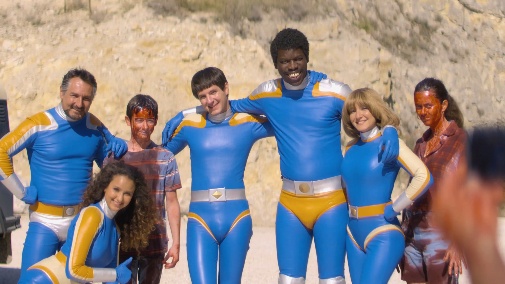
SMOKING CAUSES COUGHING
Costumes designed by Justine Pearce
So far, I've invoked costume design as an instrument of cinematic abstraction and conceptual storytelling, as an illustrator of narrative contexts and insight into character journeys. I've even touched on its value as desirable glamour – just read my love letter to Passages' fits. However, there's much to be said about costume as comedy. In that regard, Quentin Dupieux's quasi-Dadaist take on superhero movies is the perfect example, earning much laughter from the simple sight gag of its heroes in full costume. Somewhere between Marvel knock-offs and bootleg Power Rangers, these well-intentioned French men and women are fantastic caricatures. Even when the film departs from their image to consider some horror-adjacent stories, Pearce's work remains a humoristic highlight.
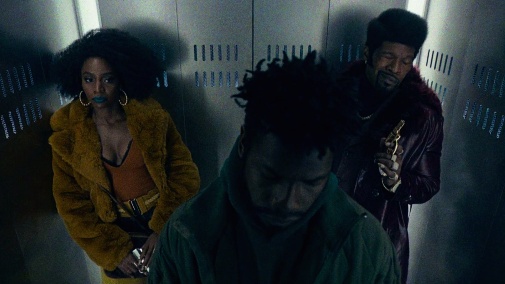
THEY CLONED TYRONE
Costumes designed by Francine Jamison-Tanchuck
Speaking of comedic costuming, Juel Taylor's sci-fi extravaganza depends on cultural stereotypes as part of its satire, including their sartorial expression. Though the cinematography skews toward underlit realism, the wardrobe exists within a different plane of stylization. It's the legacy of Blaxploitation reimagined for the 21st century, reaching its zenith around the characters of Slick Charles and Yo-Yo. As the colorful pair, Jamie Foxx and Teyonah Parris are sartorial riots, all Muppet-esque furs and fake snakeskin. One of the silliest passages even finds Parris donning a trench coat, shades, and a wide-brimmed hat in a self-conscious throwback to detective fiction. She's serving Carmen Sandiego realness for our amusement, and it works like gangbusters.
What about you, dear reader? If you could talk directly to the Academy's Costume Branch, what films would you promote?